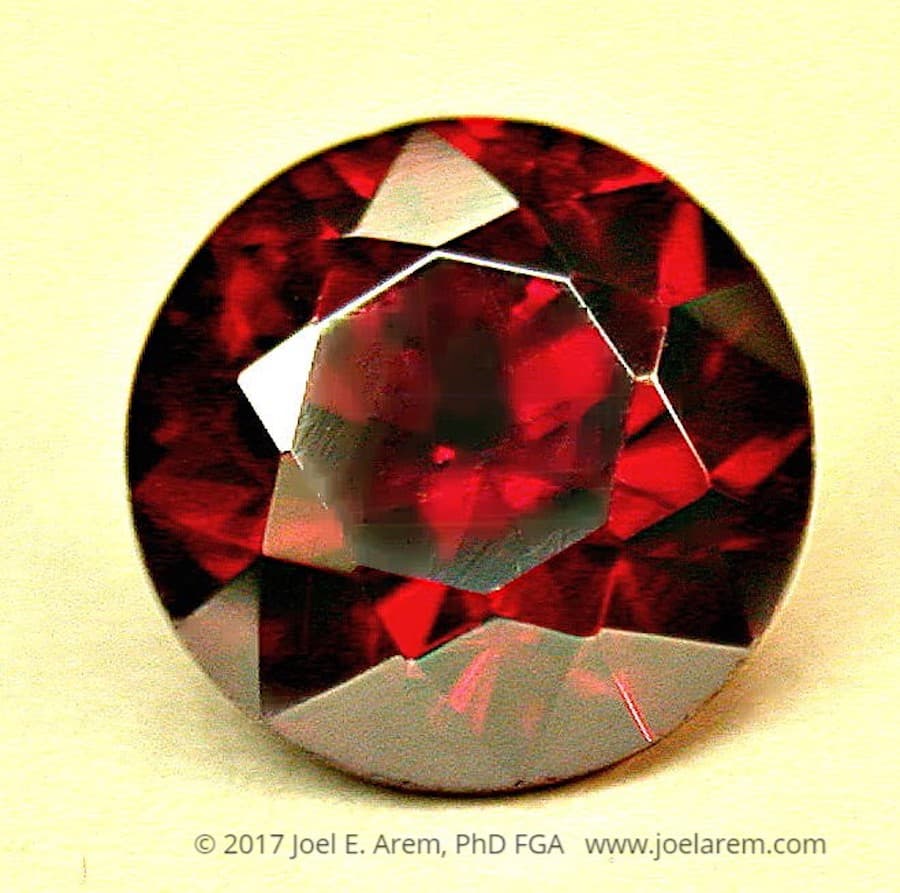Proustite Value, Price, and Jewelry Information
Proustite crystals have magnificent red colors and good brilliance. Although facetable, they're too soft for jewelry use but highly desired as collector's gems.
2 Minute Read
Proustite crystals have magnificent red colors and good brilliance. Although facetable, they’re too soft for jewelry use but highly desired as collector’s gems.
Start an IGS Membership today
for full access to our price guide (updated monthly).Proustite Value
Comments
One of the rarest of all the better-looking collector gems, faceted proustite can display deep red colors with a beautiful and distinctive metallic surface luster. Sometimes called "ruby silver," proustite is also a source of ore for this metal. (Of course, "ruby" here refers strictly to proustite's color, since these minerals are unrelated).
Proustites and xanthoconites are dimorphous. They share a chemical formula, but proustites have hexagonal (trigonal) crystal habits, while xanthoconites have monoclinic habits. Proustite also forms a series as the arsenic (As) analogue to pyrargyrite, the antimony (Sb) analogue.
Custom shield-cut proustite, 5.46 cts, 10.5 x 8.7 mm, Chanarcillo, Chile. © The Gem Trader. Used with permission.
Identifying Characteristics
The presence of silver in proustite causes a permanent photochromic effect. Exposure to light over time turns it black.
This material has a bright red streak. Please note: don't conduct streak testing on finished gems. Test material in inconspicuous spots as a last resort for identification purposes only.
Synthetics
Scientists have synthesized crystal proustites for research into optic mixing and lasers. This lab-created material may appear faceted in collections of rare and unusual gems.
Enhancements
No known treatments or enhancements.
Sources
Chile produces the world's finest proustite, particularly from the Dolores Mine in Chanarcillo. Deep red, often transparent crystals occur here in sizes up to 6 inches long and very thick. The occurrence here is unique. Most cuttable gem material comes from Chile.
Freiberg, Germany also produces fine crystals. Other German localities sometimes yield very fine, large, cuttable crystals and, occasionally, transparent fragments.
Other notable gem sources include the following:
- Cobalt district, Ontario, Canada: small crystals.
- Batopilas, Chihuahua, Mexico: small crystals.
- United States: California; Colorado; Idaho; Nevada.
- Czech Republic; Peru; Sarrabus, Sardinia.
Stone Sizes
Faceters could cut gems weighing several hundred carats from crystals displayed in various museums and private collections. However, that likely won't happen. The National History Museum in London holds some of the finest specimens known. The Smithsonian Institution holds a 9.9-ct red stone from Germany.
Care
Faceters should note that proustite does contain arsenic. When cutting this gem, take care not to accidentally ingest dust or particles from it. For more information, consult our articles on general safety tips for lapidaries and advice for handling toxic gem materials. However, wearing or handling finished proustites should pose no health problems.
Due to its photochromism, don't display this gem material under strong light. Furthermore, the stone's very low hardness (2-2.5) makes it a very impractical choice for a jewelry piece. (A coin could scratch it). Consult our gemstone jewelry cleaning guide for more recommendations.
Joel E. Arem, Ph.D., FGA
Dr. Joel E. Arem has more than 60 years of experience in the world of gems and minerals. After obtaining his Ph.D. in Mineralogy from Harvard University, he has published numerous books that are still among the most widely used references and guidebooks on crystals, gems and minerals in the world.
Co-founder and President of numerous organizations, Dr. Arem has enjoyed a lifelong career in mineralogy and gemology. He has been a Smithsonian scientist and Curator, a consultant to many well-known companies and institutions, and a prolific author and speaker. Although his main activities have been as a gem cutter and dealer, his focus has always been education.
Related Articles
Willemite Value, Price, and Jewelry Information
Peristerite Value, Price, and Jewelry Information
Prosopite Value, Price, and Jewelry Information
Hessonite Garnet Value, Price, and Jewelry Information
Never Stop Learning
When you join the IGS community, you get trusted diamond & gemstone information when you need it.
Get Gemology Insights
Get started with the International Gem Society’s free guide to gemstone identification. Join our weekly newsletter & get a free copy of the Gem ID Checklist!
